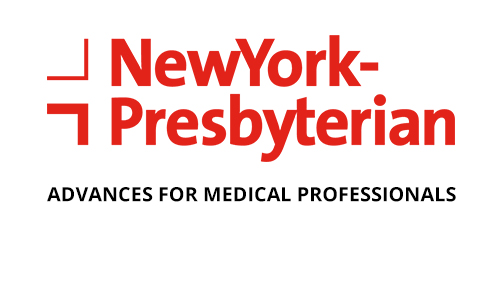Research Highlights Targeting Challenges in Cardiovascular Disease
Each and every day, NewYork-Presbyterian researchers and clinician-scientists are advancing knowledge in virtually every medical specialty. At Weill Cornell Medicine and Columbia University Vagelos College of Physicians and Surgeons, faculty are targeting some of today’s most formidable health challenges, pushing scientific discoveries forward and applying research breakthroughs to improving the lives of patients everywhere. In this issue of Advances, we share several recent investigations in cardiovascular care.
MitraClip Improves Outcomes for Mitral Regurgitation

By approximating the anterior and posterior mitral leaflets and forming a double-orifice valve, the MitraClip device reduces mitral regurgitation.
A multicenter clinical trial has found that minimally invasive transcatheter mitral valve repair significantly reduced hospitalizations and mortality for heart failure patients with moderate-to-severe or severe functional mitral regurgitation. Findings from the Cardiovascular Outcomes Assessment of the MitraClip Percutaneous Therapy for Heart Failure Patients with Functional Mitral Regurgitation (COAPT), published in the September 28, 2018 online issue of The New England Journal of Medicine, has shown that the procedure improved two-year survival for heart failure patients with moderate-to-severe functional mitral regurgitation.
“Although some drugs can help alleviate symptoms of functional mitral regurgitation due to heart failure, those therapies are of limited benefit,” says Gregg W. Stone, MD,
Functional mitral regurgitation (MR), also known as secondary MR, the focus of this study, occurs when the left ventricle enlarges after heart damage from any cause, such as a heart attack. Primary MR can be treated effectively with surgical valve replacement or repair. However, there is little evidence that surgical procedures improve outcomes for patients with secondary mitral regurgitation, who tend to have a worse prognosis and are thus typically managed medically with drugs such as beta blockers or with pacemakers to regulate heart rhythm. Nearly one in 10 adults age 75 or older in the U.S., or four million Americans, suffer from primary MR. The prevalence for secondary MR is uncertain as it is frequently undiagnosed, but is believed to be substantially higher than that of primary MR.
The COAPT trial enrolled 614 heart failure patients with moderate-to-severe or severe secondary MR at 78 sites in the U.S. and Canada who remained symptomatic despite treatment with recommended medical therapies. Participants were randomized to treatment with MitraClip® — a minimally invasive treatment that fastens the mitral valve leaflets together — and medical therapy or medical therapy alone. The researchers then compared the number of heart failure-related hospitalizations and deaths over 24 months in both groups.
Patients who had the minimally invasive procedure had 47 percent fewer heart failure-related hospitalizations and 38 percent fewer deaths than those who were managed medically. “The improvement in symptoms and reduction in need for hospitalization due to heart failure was almost immediate after the MitraClip,” says Dr. Stone. “In contrast, the improvement in survival emerged about a year after the procedure, a delayed response consistent with the long-term benefits of reducing volume overload on the heart.”
The procedure was also associated with significant improvements in quality of life and functional capacity. The treatment was determined to be safe, with low 30-day rates of death or stroke, and the reduction in MR was durable through the two-year follow-up of the study.
“Patients with heart failure and severe secondary or functional MR who remain symptomatic despite all the best medical therapies now have substantially more hope because we can improve their quality of life and survival by reducing their MR with a safe, low-risk procedure,” says Dr. Stone.
Reference Article
Stone GW, Lindenfeld J, Abraham WT, Kar S, Lim DS, Mishell JM, Whisenant B, Grayburn PA, Rinaldi M, Kapadia SR, Rajagopal V, Sarembock IJ, Brieke A, Marx SO, Cohen DJ, Weissman NJ, Mack MJ; COAPT Investigators. Transcatheter mitral-valve repair in patients with heart failure. The New England Journal of Medicine. 2018 Dec 13;379(24):2307-18.
Related Publications

New Hope for Patients with Underdiagnosed Form of Heart Failure

Valve Replacement Volume Leads to Successful Outcomes





